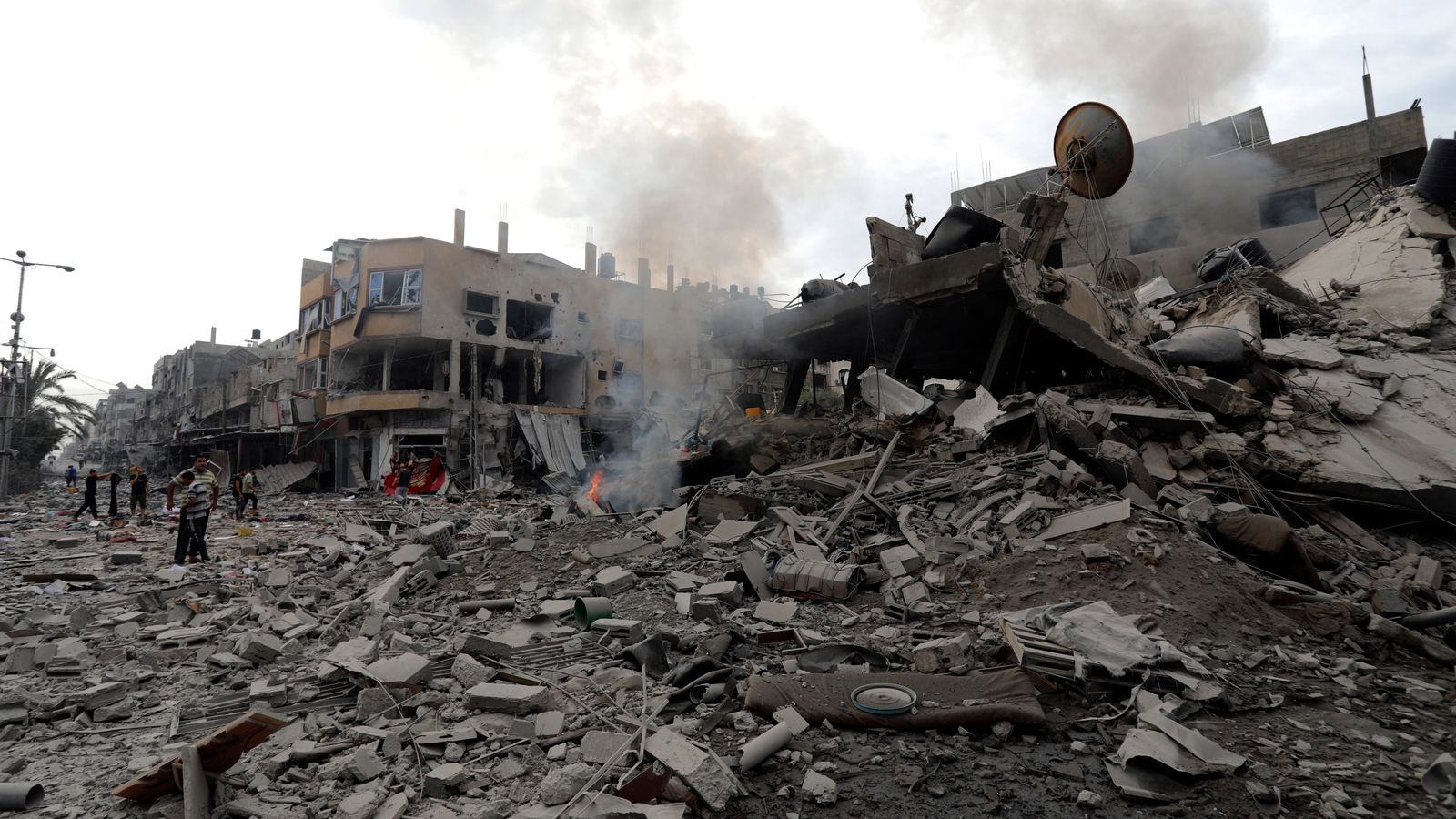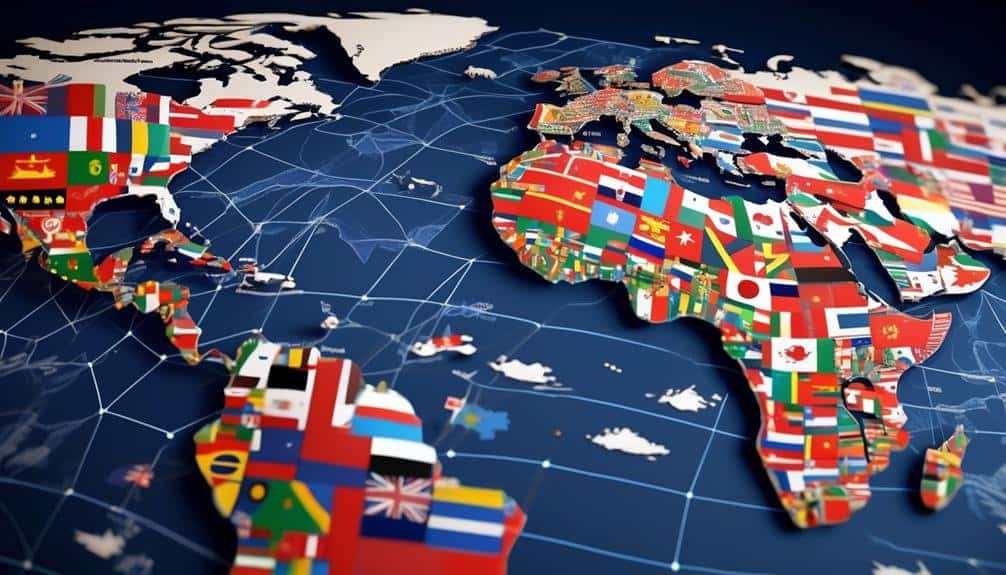Israeli Raid On Gaza Aid Ships: Coverage In Arab Media Outlets

Table of Contents
Dominant Narratives in Arab Media Coverage
The overarching themes in Arab media coverage of the Israeli Raid on Gaza Aid Ships revealed a consistent condemnation of Israel's actions. Several common threads emerged, underscoring a shared perspective across many outlets, though variations in emphasis and tone existed.
-
Focus on Israeli aggression and violation of international law: The raid was widely portrayed as a blatant act of aggression, violating international humanitarian law and the principles of freedom of navigation. Many outlets emphasized the disproportionate use of force against unarmed civilians attempting to deliver humanitarian aid.
-
Emphasis on the humanitarian crisis in Gaza and the obstruction of aid: The existing humanitarian crisis in Gaza, exacerbated by the blockade, was frequently highlighted. The Israeli raid was framed as further obstructing desperately needed medical supplies, food, and other essential resources for the beleaguered Palestinian population. The suffering of Palestinian civilians was a central theme.
-
Highlighting the suffering of Palestinian civilians: Arab media outlets extensively depicted the suffering of Palestinian civilians, including injuries and deaths during the raid. Images and videos of the aftermath were widely shared, emphasizing the human cost of the Israeli action. This aimed to garner empathy and international support for the Palestinian cause.
-
Portrayal of the raid as a deliberate act of violence against innocent people: The narrative consistently framed the incident not as an accident or miscalculation, but as a deliberate act of violence targeting innocent civilians engaged in a humanitarian mission. This portrayal aimed to foster outrage and condemnation of Israel's actions.
-
Differences in tone and approach across various outlets (e.g., Al Jazeera vs. Al Arabiya): While a common thread of condemnation existed, subtle differences in tone and emphasis were observable. Al Jazeera, for instance, often adopted a more critical and overtly anti-Israel stance, while Al Arabiya, while condemning the raid, sometimes presented a more nuanced or balanced perspective, though still largely critical of Israel’s actions. This reflects the varying political leanings and editorial stances of different news organizations.
Specific Examples of Media Framing from Key Outlets
Examining specific examples from prominent Arab news sources reveals the nuances and variations in their reporting of the Israeli Raid on Gaza Aid Ships.
-
Analysis of Al Jazeera's coverage: Al Jazeera's coverage extensively utilized strong, emotive language, highlighting the "brutality" of the raid and emphasizing the suffering of Palestinian civilians. Their choice of interviewees predominantly featured Palestinian activists and officials, further reinforcing a critical perspective.
-
Analysis of Al Arabiya's coverage: Compared to Al Jazeera, Al Arabiya's coverage, while still critical of the Israeli action, sometimes included more balanced reporting, presenting brief counterpoints or including statements from Israeli officials. However, even Al Arabiya's framing largely centered on the humanitarian crisis and condemned the attack as excessive and unjustified.
-
Mention of other key outlets (e.g., BBC Arabic, Reuters Arabic) and their unique angles: BBC Arabic and Reuters Arabic, while aiming for journalistic objectivity, also heavily emphasized the humanitarian implications and international legal violations associated with the raid. Their coverage, however, often included a wider range of perspectives compared to solely Arab-owned channels.
-
Inclusion of specific examples of headlines, quotes, and imagery used to frame the narrative: Examples include headlines like "Israeli Assault on Gaza Aid Ships Condemned," quotes from Palestinian officials describing the incident as a "war crime," and graphic images of injured civilians. These elements collectively contributed to the overall narrative presented in Arab media outlets.
The Role of Social Media in Amplifying the Narrative
Social media played a pivotal role in rapidly disseminating information and shaping public opinion regarding the Israeli Raid on Gaza Aid Ships within the Arab world.
-
Analysis of trending hashtags and keywords related to the incident: Hashtags such as #GazaUnderAttack and #FreeGaza, along with Arabic equivalents, went viral, facilitating widespread discussion and condemnation of the raid.
-
Discussion of the spread of images and videos depicting the aftermath of the raid: Graphic images and videos of injured civilians and damaged ships were shared extensively, generating significant emotional responses and reinforcing the narrative of Israeli aggression.
-
Examination of the role of social media in shaping public opinion within the Arab world: Social media platforms served as powerful tools for mobilizing public opinion, fostering collective outrage, and expressing solidarity with Palestinians. This rapid information flow bypassed traditional media gatekeepers, contributing to a swiftly formed and unified sentiment against Israel's actions.
-
Potential for misinformation and propaganda spread through social media channels: While social media amplified legitimate concerns, it also presented a risk for the spread of misinformation and propaganda, requiring critical evaluation of shared content.
Comparative Analysis with Western Media Coverage
While Arab media predominantly focused on the humanitarian crisis and Israeli aggression, Western media coverage often presented a more balanced—though still critical—perspective, sometimes including counterarguments from the Israeli government. This difference might stem from geopolitical considerations and the differing relationships between Western nations and Israel.
Conclusion
The Israeli Raid on Gaza Aid Ships received extensive and largely critical coverage in Arab media outlets. The reporting consistently focused on the humanitarian consequences, portraying Israel's actions as a violation of international law and causing immense suffering to Palestinian civilians. Social media significantly amplified these narratives. Differences existed in specific framing across outlets, reflecting diverse editorial stances. Understanding the nuances of this coverage is crucial for comprehending the ongoing conflict and its impact. Further research into the individual perspectives of these outlets is strongly encouraged to gain a more complete picture of this complex event surrounding the Israeli Raid on Gaza Aid Ships. Continue to explore diverse sources to gain a deeper understanding of this complex issue.

Featured Posts
-
 Reaktsiya Zakharovoy Na Situatsiyu S Prezidentom Frantsii I Ego Suprugoy
May 03, 2025
Reaktsiya Zakharovoy Na Situatsiyu S Prezidentom Frantsii I Ego Suprugoy
May 03, 2025 -
 El Suizo Fabio Christen Conquista La Vuelta A Murcia
May 03, 2025
El Suizo Fabio Christen Conquista La Vuelta A Murcia
May 03, 2025 -
 Securing A Place In The Sun Navigating The International Property Market
May 03, 2025
Securing A Place In The Sun Navigating The International Property Market
May 03, 2025 -
 The Story Of Shrove Tuesday Why We Celebrate Pancake Day
May 03, 2025
The Story Of Shrove Tuesday Why We Celebrate Pancake Day
May 03, 2025 -
 Ceki Dy Viktima Nga Sulmi Me Thike Ne Qender Tregtare
May 03, 2025
Ceki Dy Viktima Nga Sulmi Me Thike Ne Qender Tregtare
May 03, 2025
